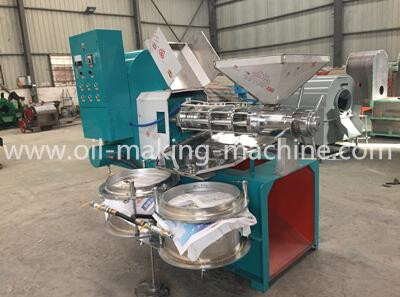
Author:Jintai networks Modified date:2024-7-22 10:56:28

Introduction
Laos, a landlocked country in Southeast Asia, has been known for its rich cultural heritage and traditional craftsmanship. One of the most significant sectors that showcase this craftsmanship is the oil pressing industry. With the advent of multifunctional oil press technology, Laos is on the verge of revolutionizing its artisanal practices and strengthening its industrial capabilities.
Craftsmanship and Industry in Laos
The oil pressing industry in Laos has been primarily driven by small-scale, family-owned businesses that rely on traditional methods to extract oil from various seeds and nuts. These methods involve manual labor and rudimentary tools, which limit production efficiency and product consistency. However, these traditional practices have allowed for the preservation of local knowledge and skills, contributing to the cultural identity of Laotian communities.
The introduction of multifunctional oil press technology presents an opportunity to enhance the productivity and profitability of these small-scale enterprises while maintaining their cultural integrity. By adopting modern techniques, Laotian artisans can improve the quality and quantity of their products, expand their market reach, and compete more effectively in the global arena.
Multifunctional Oil Press Technology
Multifunctional oil press technology offers several advantages over traditional methods. Firstly, it automates the oil extraction process, reducing manual labor requirements and increasing efficiency. Secondly, it allows for better control over temperature and pressure, resulting in higher oil yields and improved oil quality. Thirdly, it can process a wide range of raw materials, including peanuts, soybeans, coconuts, and more, making it versatile for different markets and applications.

Furthermore, this technology can be customized to suit the specific needs of Laotian artisans, ensuring that they can maintain their unique flavors and characteristics while benefiting from increased productivity. The integration of this technology into existing processes can also facilitate the development of new products and services, diversifying the portfolio of Laotian oil producers.
Industrial Strengthening
The adoption of multifunctional oil press technology not only benefits individual enterprises but also has the potential to strengthen the entire Laotian industry. By increasing productivity and product quality, Laotian oil producers can command higher prices in the domestic and international markets, boosting the country's economy. Additionally, as the industry grows, it can attract further investment and create employment opportunities, contributing to socioeconomic development.
Moreover, the advancement in craftsmanship through the use of this technology can foster innovation and entrepreneurship within the Laotian community. As artisans become more proficient in operating and maintaining the equipment, they can develop new skills and knowledge that can be applied to other areas of industry or even lead to the creation of new businesses.
Conclusion
The introduction of multifunctional oil press technology in Laos represents a significant step forward for the country's oil pressing industry. By embracing this technology, Laotian artisans can elevate their craft while enhancing productivity and profitability. This shift towards modernization not only preserves the cultural heritage but also paves the way for industrial growth and economic development. As Laos continues to integrate this technology into its artisanal practices, it positions itself as a competitive player in the global marketplace, showcasing the power of tradition meeting innovation.
Prev :
Industrial Mastery and Dedication: The Role of Automatic Oil Press Machines in Vietnam's Peanut Industry
Next :
Sesame Seed Transformation: Small Oil Press Machines in Cambodian Markets